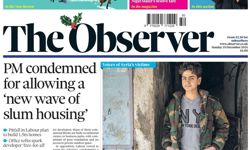In the first case, an article in the Sunday Sun had reported that a local radio presenter had been suspended after sending suggestive emails to a female listener. The newspaper published the text of emails subsequently sent between the pair. The radio presenter argued this was intrusive, given that they were only intended to be read by the individual recipient (which he argued the disclaimer on his emails made clear). The newspaper, however, contended that it was entitled to publish the information, since the DJ was a prominent local figure who had referred publicly to his wife and children, and who had used his work email account to send the messages in question. The PCC agreed that the Code had not been breached and ruled that "allegations about inappropriate behaviour" in this sort of professional context could be justified in the public interest.
The Commission also ruled that the Darlington and Stockton Times did not breach the Editors' Code when it published an article about the dismissal of a local Council official which gave details of a substantial termination payment the official had received from his former employer, and noted that he had been absent from work due to health reasons. The complainant argued these two points were private and confidential, and should not have been published.
However, although the Commission understood the complainant's strength of feeling on the matter, it was nonetheless "satisfied that there was an adequate justification for the inclusion of both details". On the health point, the reference had been general and not included specific details, making any intrusion on this point "slight". On the monetary point, the Commission was satisfied that publication was "proportionate to the public interest in the story, so as to explain to readers the manner in which the departure of a public servant had been handled by the council". It also noted the added justification of the fact that payment involved public money.
The PCC Director, Stephen Abell (pictured), commented: "Individual privacy rights remain of course, of paramount importance, but these cases demonstrate that in some circumstances, a strong public interest can justify publication. The Commission is an expert body able to weigh up the sometimes conflicting rights of privacy for an individual with the freedom of a newspaper to publish information in the public interest."










